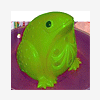-
Welcome to the eG Forums, a service of the eGullet Society for Culinary Arts & Letters. The Society is a 501(c)3 not-for-profit organization dedicated to the advancement of the culinary arts. These advertising-free forums are provided free of charge through donations from Society members. Anyone may read the forums, but to post you must create a free account.
Whatever Happened To English Cooking?
-
Similar Content
-
- 45 replies
- 14,102 views
-
- 9 replies
- 819 views
-
- 27 replies
- 803 views
-
- 73 replies
- 20,848 views
-
- 30 replies
- 6,515 views
-
-
Recently Browsing 0 members
- No registered users viewing this page.



Recommended Posts